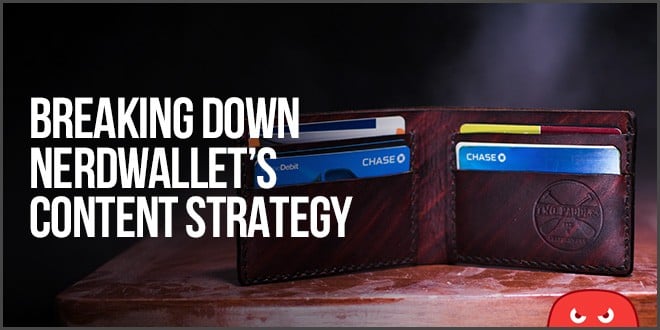Hey there Hoth Family! This is Alejandro from HumanProofDesigns and on this post I’m going to show you the number 1 technique to build links to affiliate sites in a safe way.
Why should you even care? Well, let me tell you something.
Chances are, you are working against yourself when you do link building without knowing.
Why do I know that?
Ever found a site using anchors like “chicago cpa attorney” or “best waterproof bluetooth speakers 2018” with all their links?
Ever bought links and used such anchors pointing straight to your money pages? Oh, several times you say?
Well, like said… You may be shooting yourself in the foot.
Don’t take me wrong, exact match anchors when used right and coming from strong, clean sources can shoot your page to the moon, even if it’s a single link.
But this year the SEO game is harder than ever, niches are just getting more and more competitive (Thanks to BIG media agencies expanding their turfs into affiliate lands) and you need to start being SMART when you grow your site and build links to it.
On this article, I’m NOT going to cover link pillowing, anchor text ratios or off-page SEO principles that you should ideally be already familiar with, but more about the RIGHT type of internal architecture for affiliate sites.
I’ve linked to top of the league guides for those things above anyway 😉 Take your time and do your reading if you need.
By the end of this article you’ll be equipped to bring your link building to a new level.
Let’s jump right into the meat.
1. Architecture For Affiliate Sites: Building Topical Relevance and Internal Links.
So the first thing that you need to have in place is the right architecture. You’re probably familiar with the concept of “topical relevance” but if you aren’t, here’s the TL:DR of it:
A website needs a sufficient amount of content (pages) around a given topic/location/concept for it to be considered “relevant”. 5 seems to be the minimum.
This means a niche site about straight razors that grows into general men’s grooming, should ideally have at least 5 pages/posts about “waxing” if it wishes to rank for things like “best wax for chest hair”
You know exactly what I’m about to say.
First thing you need: Enough pieces of content around any topic.
So let’s say you want to rank for “best straight razor” with your awesome brand new guide.
First thing for you to do is create AT LEAST another 4 pieces of content about straight razors and interlink them to your “best straight razor of 2018 (reviews and comparison)” page (cuz that’s the title you’re using, right?)
(At HPD we do exactly that when we build affiliate sites for our customers. We pick a profitable niche, and we use this architecture to create a solid site that ranks and helps users.)

Regarding which anchors to use internally, you want to keep your exact match anchors at 30-50% (depends on how many pages you have. Not the same to link 4 times to a page than link 120 times) and then just use what I call “smart anchors” on the off-page seo guide that I’ve linked to above.
Keep them relevant and natural, that’s all.
What this gives you is sufficient Topical Support for your main affiliate term.
Let’s elaborate on what the above structure means and how to pick the right keywords for your support content.
2. Best Types Of Supporting Content & Money/Info Ratios
You can theoretically talk about whatever you want for as long as the main topic is the same as the page you’re trying to support (i.e. straight razors)
But why would you invest money in just “any” content, right?
Here are the typical ways to create supporting content and grow any affiliate niche:
- Create other money pages about specific variations of the product (so, longer tail versions of it, what I call “second” and “third” level of depth). I.e. “best dovo straight razor” or “best straight razor for shaving head”. (light blue bubble)
- Review specific products. I.e. “Equinox Professional review” (orange bubbles)
- Compare products (i.e. “straight razor vs safety razor”)
- Solve people’s questions about the product: How to use it, what are the different types of xyz available, how to clean it, is it safe to use… for any given product there will be HUNDREDS of these that you can find. (green bubbles)
NerdWallet is a prime example of an affiliate site that grew with content.
What is the single best type of content to build links to?
Informational content.
Why?
Because it’s natural.
People share useful guides on social media all the time. People like to back up their statements when talking about a topic with some expert’s opinion on the issue; and because it’s user-centric content.
It’s simply a million times more natural for someone to share or link to an article about “Top tips to avoid ingrown hairs when using a straight razor” or “Shaving like your badass grandpa: why you should use a straight razor” rather than to a list of the top 10 selling razors on Amazon.
How many info pieces should you be creating? I suggest a 1:2 ratio. At least one info piece per 2 money pieces. You still want to bring home that revenue so you need a nice amount of money content.
Now you might be saying, “I’m never going to rank for how to shave with a straight razor. I’ve seen the SERP. Why would I bother spending money on that piece? I’ll just send links to my best straight razors page”
Hold on buddy, I’ve got you covered.
3. Finding EASY Topics To Rank For That People Actually Search For
In any field or niche, beyond the obvious doubts about the product itself there are always a nice bunch of more obscure, less frequent questions that people search for in Google.
“Why do my eyelashes curl down” isn’t a keyword you’d necessarily think about when you try to come up with informational content ideas to support your “best eyelash curler” page, is it?
Yet, the search term has volume and do you know how many pages in the whole immensity of the interwebz are answering that question?

Yes, that’s just one single answer, you can stop rubbing your eyes now.
Disclaimer: I claim no credit for this smart method. Credit’s due to the man who originally talked about using allintitle searches to gauge competition and even came up with a complete math ratio to determine if a keyword is dead easy to rank for or not: Doug Cunnington.
Ok ok, awesome way to find good keywords. But why on Earth would I build links to something that ranks that easy? Doesn’t it defeat the whole purpose of these type of keywords?
Let’s solve this puzzle for once and for all:
4. Funneling Juice & THE ONE THING You Need To Build Links To Any Page
Traffic. That’s its. You NEED traffic to justify links. (And some social shares help too, obv)
The more traffic, the more links you can send to any page. It’s just natural right? More people see it… more people link to it.
So here’s the whole process laid down for you:
- Create your money page.
- Create support pages around KGR keywords
- Interlink those support pages to your money page using the right anchors.
- Traffic will flow from the support pages to your money page via internal links
- Build links to those support pages
- Juice will flow to your money page
- Send a few high-impact links straight to your money page
- Upload traffic screenshot to your favorite SEO group on Facebook for other people’s delight.
- Profit.
And last but not least: Test.
Good SEOs test. Test stuff. You can use HOTH products to build the links to your support pages while you concentrate on testing different architectures.
Test. And have some fun in the process.
To your success,
Alejandro.
Author Bio: Alejandro Meyerhans is a Spanish marketer that focuses on SEO and Lead Generation. He’s HumanProofDesigns’ Acquisitions Director and is obsessed with sales, scaling, systems and all things Internet Marketing. He also manages a portfolio of 13 affiliate sites. In the odd hours when he isn’t working, he enjoys motorcycles (riding and building them) and discovering the best eateries in Chiang Mai.









Great Article… GO HOTH GO HOTH!!
Haha thanks a lot!
Thanks for the article Clayton. I guess I have to focus more information content. I also see that facts post do well to when it comes to link building. Facts post like “niche statistics”. What do you think?
Hoth is always coming by variety of content and post . Great work , hoping more and more and more …..Thank you so much.